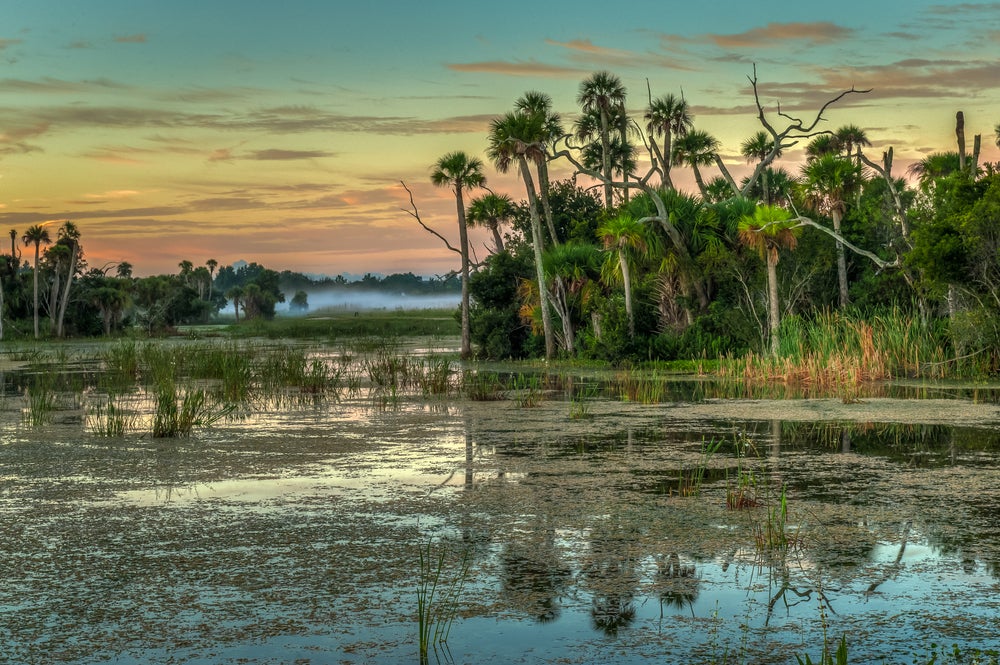Water Policy Bill Could Be Big Victory–For Polluters
Florida's major rewrite of hundreds of clean water regulations is putting the state's water supply in danger.

This page was published 10 years ago. Find the latest on Earthjustice’s work.
In Tallahassee political circles, people are fond of talking about "win-win" situations. But we all know the truth, right? When somebody wins, that means somebody loses.
Early next year, all of us who want to keep polluters from ruining our water supply might end up as the losers.
The threat comes from the Legislature's massive water policy bill, a major rewrite of hundreds of clean water regulations that Florida has on the books. You'll hear politicians and their lobbyist friends talking about how the water policy bill balances competing interests. No, it does not.
This bill was written by lobbyists for agricultural corporations. It's telling, isn't it, that the go-to political leader on the water policy bill is not an environmental protection official, but Agriculture Secretary Adam Putnam.
Big Agriculture is a campaign cash rainmaker for these politicians, and it looks like the agriculture lobby is getting its money's worth. Environmental regulations on Florida agriculture are notoriously weak already. To write this water policy legislation, polluter lobbyists went through clean-water regulations with a fine-toothed comb, teasing out any and all rules that require them to clean up their acts.
The changes are artful and subtle, and—if the bill passes—the effects are going to come back to haunt us all.
Every day, we already see the damage: dead fish littering closed beaches, tainted drinking water, and green slime outbreaks on our rivers, springs and lakes. You'd think that, seeing the evidence at hand, that it might be prudent to strengthen clean water rules. But that's not what's happening.
For one thing, the legislation would do away with water pollution permits entirely for agricultural corporations around Lake Okeechobee. That's right, no permits required! Agricultural operations are only asked to do voluntary "Best Management Practices" to keep pollution from fouling our drinking water. It's as if the Highway Patrol said it was OK for some of us to voluntarily report our speed on Florida highways. Nobody would ever get a speeding ticket.
I think we can all agree that protecting our public drinking water supplies should always be one of government's core functions. Lake Okeechobee is a drinking water source for several small towns and for West Palm Beach, Fort Myers, and the entire Lower East Coast metropolitan area. Getting rid of permits for polluters there is unconscionable and unwise.
One of the other disturbing aspects of the legislation is it further liberalizes the rules that spell out how much groundwater private interests can take from our public supplies. Groundwater withdrawal permits used to expire after five years, now they can last for dozens of years, even if circumstances change.
The water policy bill has lots of water supply giveaways to big-bucks operators; it includes nearly $1.8 billion in tax dollars to give to private interests that will stick straws in our rivers to feed more development in Central Florida, and directs our public water management districts to hand out tax dollars for "cost-share" projects so agricultural companies get paid to do the voluntary "Best Management Practices."
I advise everybody reading this to contact their legislator and tell them you want this legislation amended so it doesn't loosen the rules for polluting industries. If this legislation is not amended during the session that starts Jan. 12, our rivers, springs, lakes and beaches lose. We lose.
This blog was originally published by the South Florida Sun-Sentinel on December 19, 2015.
The Florida regional office wields the power of the law to protect our waterways and biodiversity, promote a just and reliable transition to clean energy, and defend communities disproportionately burdened by pollution.